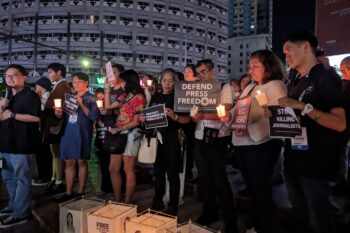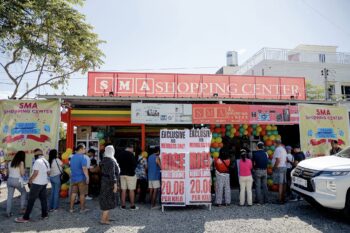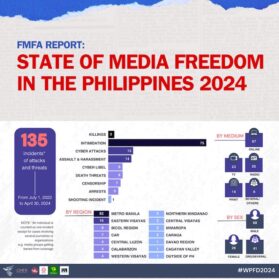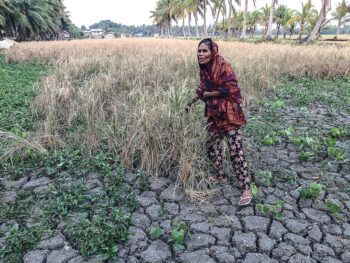GENERAL SANTOS CITY (MindaNews/15 January) – The cities of Isabela and Cotabato are odd. They live in the House they were born in; have legally denied through election kinship with the members of the House they were born with; but, by necessity, have grown by and enjoyed the blessings they were born to.
Now, they are being asked for the third time to acknowledge that kinship and join their kin to determine for themselves, by right, how to develop their richly endowed House. Must they elect to acknowledge and join? That is their burden.
Isabela City
[Interesting Historical Note: istoric Zamboanga City when created in 1937included Basilan Island.. Basilan was created into a separate city in1948. In 1973, Presidential Decree No. 356 created the Island as Basilan Province with three municipalities – Isabela (capital), Lamitan and Maluso – without abolishing Basilan City but retaining it in an area of about one square kilometer sliced off Isabela. Later, two successive decrees amended PD No.
356. In No. 593, seven new municipalities were created while Basilan City was slightly enlarged; in No. 840, the ten municipalities were reduced to seven and Basilan City was merged with Isabela. On March 5, 2001 Isabela became a city. (Source: Wikipedia)]
In the November 1989 plebiscite, Basilan opted out of the ARMM under RA No. 6734. In the August 14, 2001 plebiscite, it joined the so-called expanded ARMM under RA No.
9054; but, Isabela, voting separately as chartered city by then, opted out. Consequently, Basilan relocated its capital to Lamitan (now a city) and Isabela City was left in an awkward situation.
First, administratively, Isabela City, still under the jurisdiction of Basilan, fell outside that of the ARMM while remaining with Region IX which is composed of the three Zamboanga Provinces and Zamboanga City with its seat in Pagadian City. As such, regional services for Isabela City come from offices in Region IX, not the ARMM; the Basilan provincial government and its Sangguniang Panlalawigan provide provincially devolved services.
Second, as just a component city –not independent component – (a) Isabela City is still being regulated by the Basilan provincial government in the administration of provincially devolved services and functions; (b) it shares its tax revenues with the province; (c) its residents are eligible to both vote and run for provincial offices of Basilan; and, (d) it is part of lone congressional district of Basilan.
Cotabato City
Cotabato City, an independent component city, refused to join the ARMM in 1989 and 2001. Remaining in Region XII, it is like Isabela City in one way but not in others.
First, in both RA Nos. 6734 and 9054, Cotabato City was designated as the tentative seat of ARMM until the Regional Assembly could pick the permanent seat. It passed up the privilege conferred. However, it continued enjoying it when ARMM failed to choose its permanent seat.
Second, as Isabela City ceased being the capital of Basilan, Cotabato City lost the seat of Region XII to Koronadal City.
Third, unlike Isabela City, as an independent component city of Maguindanao, Cotabato City is not administratively subject to the provincial government of Maguindanao which provides no services to the city; does not share its tax revenues with the province; does not participate in Maguindanao elections except that for congressional representative as it is part of the first congressional district of Maguindanao.
Common Concerns
Except for losing the convenience due their political capital status – as capital of Basilan on the part of Isabela City and of Region XII in the case of Cotabato City – they did not lose any by opting out of the ARMM. Since 2001, they have shown significant increases in their income and population – evidence of social and economic growth. Do they have to join BARMM or Bangsamoro,¸for short?
To unburden themselves, their voters should weigh these vital issues and facts:
On politics: Political leaders of the two cities relate with leaders of their immediate political neighbors to promote their common political welfare or solve their problems. They elect their representatives to the Congress together with the voters of the districts of the provinces to which they belong.
On economy: The two cities do trade and commerce with areas and people immediately around them, not with their distant regions. Cotabato City, for instance, uses primarily the port of Polloc in Parang and the airport in Awang, Datu Odin, both in Maguindanao for its trade and commerce.
On peace and order: Both cities are represented in the peace and order councils of their regions; yet, in reality those councils have nothing to do with security and peace and order conditions in those cities. For instance, when crimes are committed in Cotabato City it’s the Maguindanao provincial and ARMM regional police commands that assist the city police to solve them, if necessary.
On social services: When necessary, the cities coordinate with their immediate neighbors to facilitate social services. For instance, Cotabato City does not have sources of potable water. It coordinates with Sultan Kudarat and Datu Odin Sinsuat for this necessity.
School system: Officially, at present, the school divisions of the two cities are under their respective regions. Under the Bangsamoro Organic Law, the Bangsamoro educational system will have features especially for Bangsamoros calling for programs especial for Bangsamoro children.
On Shari’ah: The Shari’ah will be an essential part of the Bangsamoro justice system. While non-Moros (unless they opt otherwise), are exempted from the application of Shari’ah laws, the exemption does not apply to geographical areas within Bangsamoro.
By the census of 2015, Cotabato City is 76 percent Muslim (228,036 out of 299,438); Isabela, 64 percent (72,182 out of 112,788). They are predominantly Muslim cities in predominantly Muslim provinces. Yet, as of January 1, Luwaran, the website of MILF Central Committee, said YES-Vote in these two cities was problematic.
Considering the foregoing, should the cities of Cotabato and Isabela not VOTE YES? Are they, by their Moro-ness not constrained to be one with all other Muslim provinces and cities to pursue their right to self-determination to develop their rich Bangsamoro natural, human and cultural resources for themselves and other Bangsamoros?
Or, will they still VOTE NO, unmindful of their Moro-ness knowing that they will not be kicked out of the House they were born in, denied of their kinship with those they were born with and deprived of their right to continue growing in and enjoying the bounty they were born to in Bangsamoro?
patponcediaz@yahoo.com







